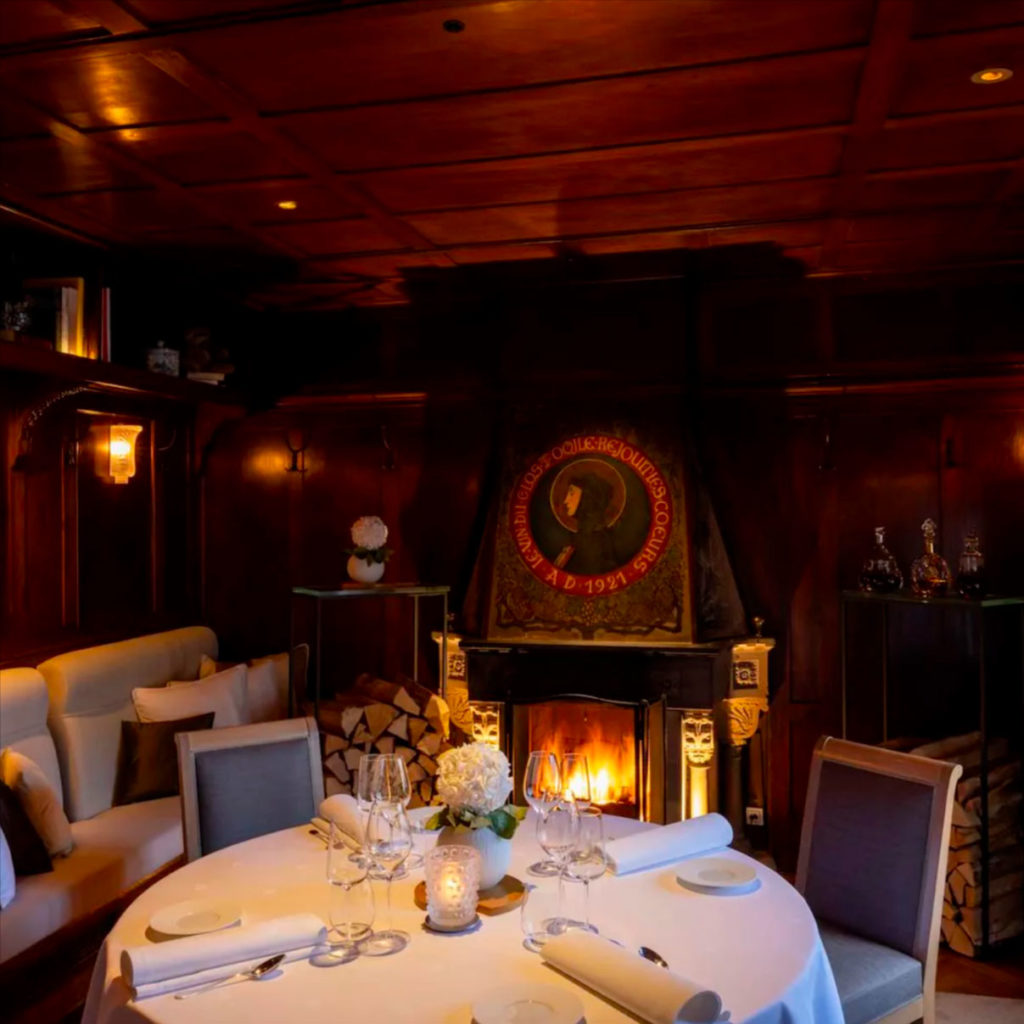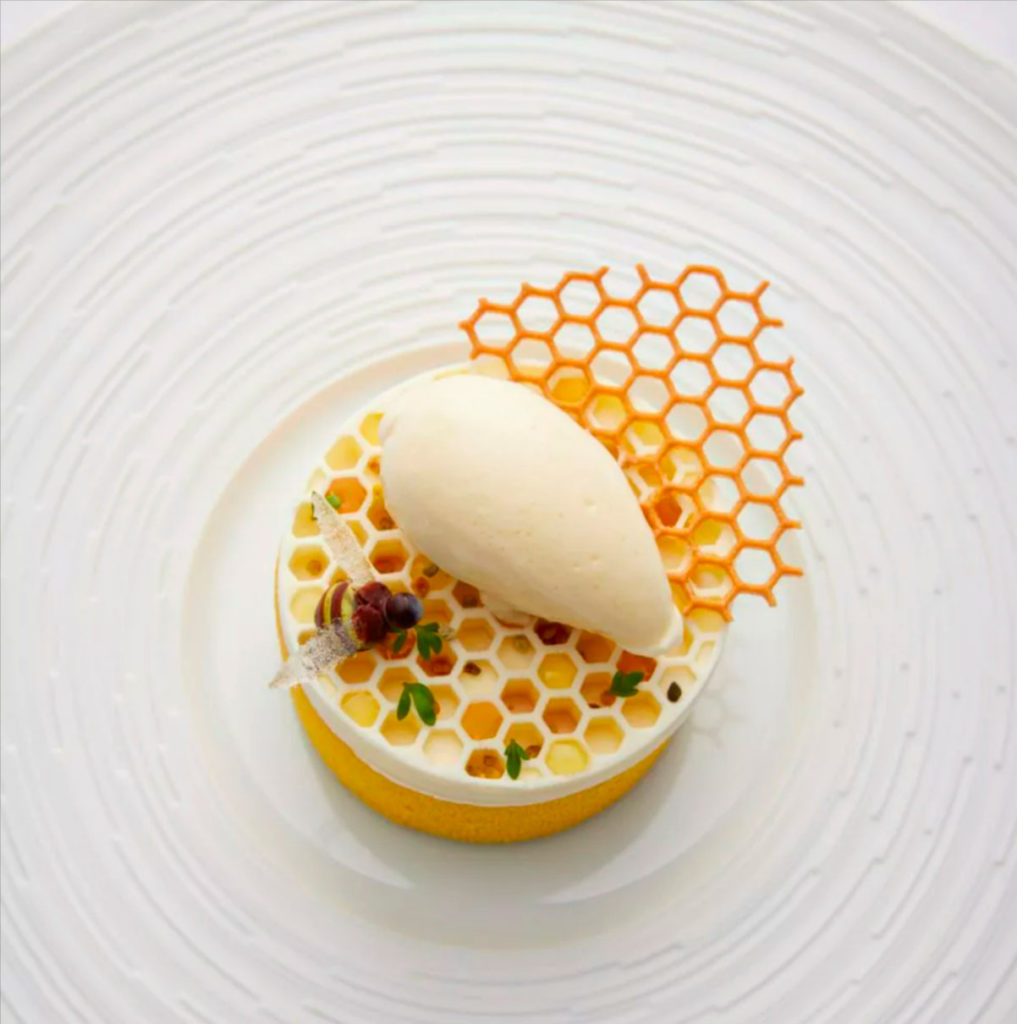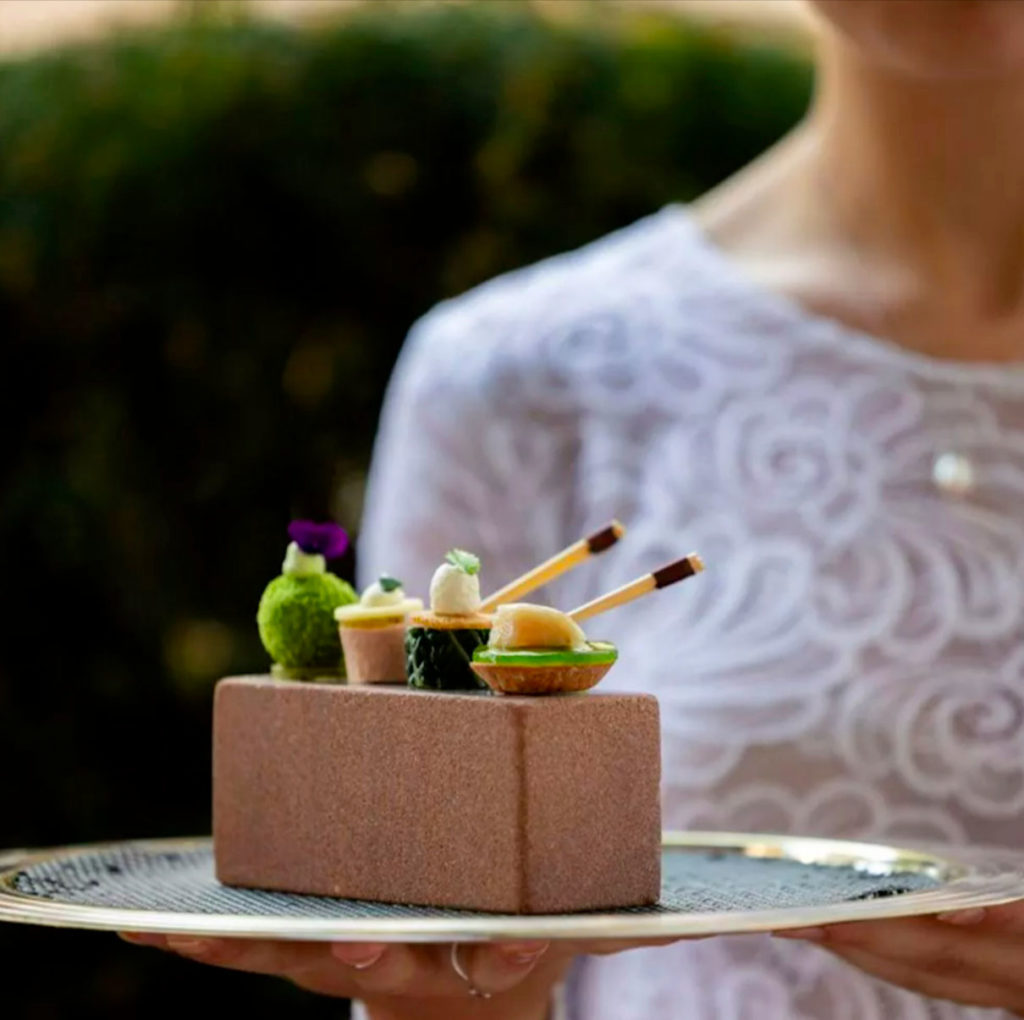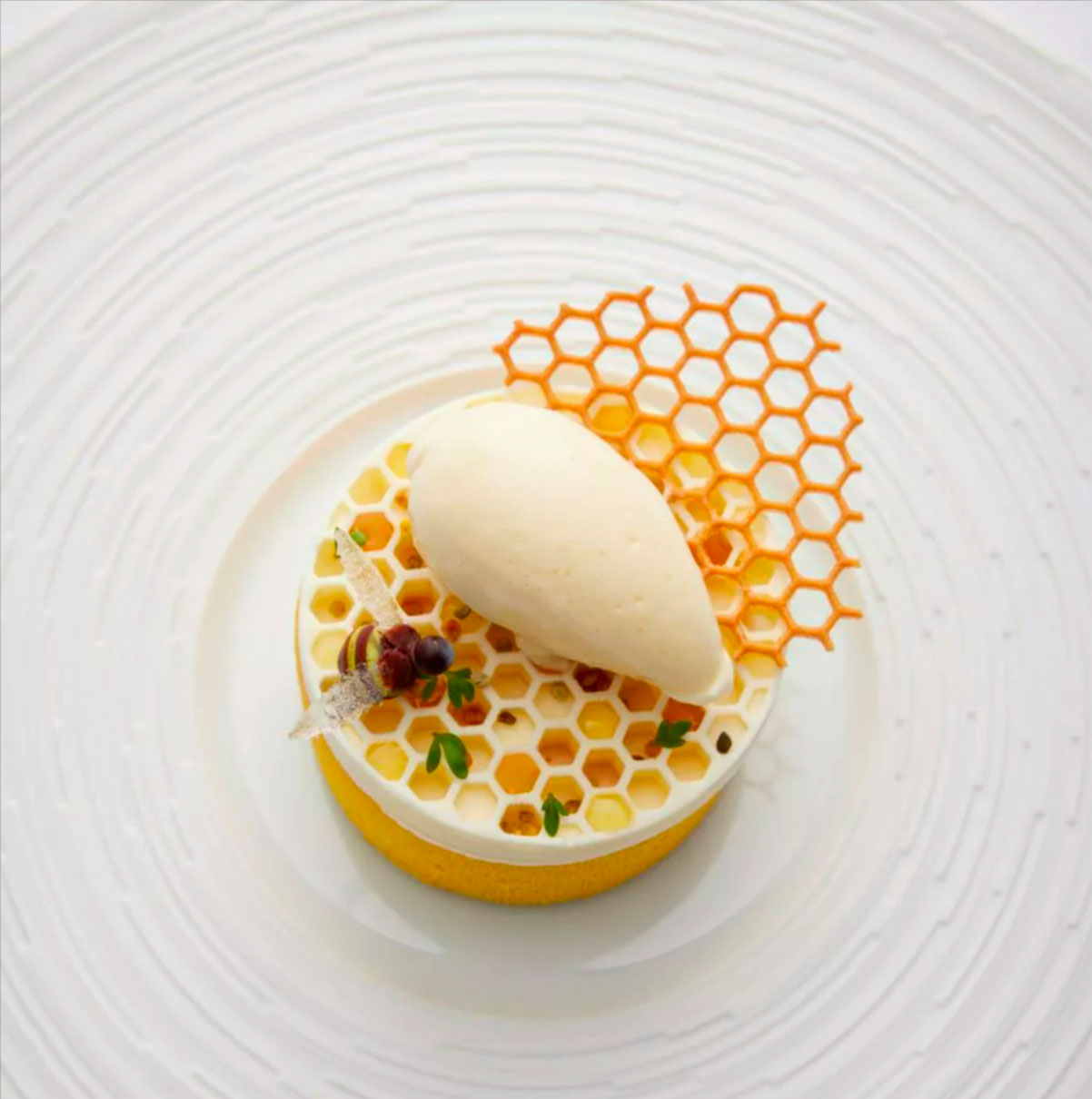Explore chef Nicolas Stamm-Corby’s cuisine at La Fourchette des Ducs, an awarded Michelin restaurant offering refined food in the heart of Alsace.
A Michelin-awarded restaurant rooted in Alsace tradition
The location and historical setting
La Fourchette des Ducs is located in Obernai, a small town in the Bas-Rhin department in Alsace, eastern France. The restaurant occupies an Art Deco villa built in 1920, previously owned by the De Dietrich family. The building is classified as a historical monument. It has preserved original features such as wood panelling, glass ceilings, and wrought iron details. The ambiance is formal but calm, with 30 covers and a focus on a seasonal, fixed tasting menu. Obernai is located about 30 km (18.6 miles) from Strasbourg and is accessible by regional train or car.
Nicolas Stamm-Corby’s role
Nicolas Stamm-Corby is the executive chef and co-owner of La Fourchette des Ducs, along with Serge Schaal, the restaurant’s director and sommelier. Stamm-Corby was born in 1973 in Alsace and trained under professionals like Paul Haeberlin (Auberge de l’Ill), Emile Jung (Crocodile), and Antoine Westermann. He took over the kitchen of La Fourchette des Ducs in 1995. The restaurant earned its first Michelin star in 2000, followed by a second in 2005, which it retained until 2023. Since then, it holds one Michelin star.

The food: Alsatian roots with contemporary precision
Seasonal, local, and structured menus
Stamm-Corby’s cuisine is based on local Alsatian products and seasonal ingredients. The dishes aim for balance rather than excess. No molecular techniques or theatrical presentations are used. Instead, Stamm-Corby works with vegetables from a local cooperative, fish from French rivers, and Alsatian meat producers. The bread is made on-site using organic flour. Wine pairings focus on Alsace grands crus, with some Burgundy and German Rieslings added for acidity.
The fixed tasting menu is updated regularly. Prices start around €185 (approx. £160 / \$200) for the multi-course dinner menu, with wine pairings adding around €75 (approx. £65 / \$81). A weekday lunch menu is available for €75 (approx. £65 / \$81). Portions are structured to suit the tasting menu format.
Signature dishes
Among the known dishes are “poached blue lobster with Riesling sabayon”, “duck foie gras with Gewürztraminer jelly”, and a refined choucroute with fish instead of pork. Stamm-Corby’s team also offers desserts like kirsch-scented black forest cake and vanilla mille-feuille with Alsatian mirabelle compote.
The sauces are made using traditional reductions, and the plating is minimalistic. Ingredients are not disguised or deconstructed. The focus is on taste precision and temperature control. Stamm-Corby does not over-salt or use too much butter, in contrast to some classical French kitchens.
The philosophy and work organization
Team structure and service rhythm
The kitchen employs around 15 staff members, including a dedicated pastry team. The dining room, run by Serge Schaal, has about 10 people, offering calm, silent service without excessive commentary. Dishes are explained concisely. The restaurant operates for lunch and dinner, from Wednesday to Sunday, closing on Mondays and Tuesdays. It serves around 800 to 1,000 covers per month, with a 2-week wait time for dinner reservations.
The restaurant prefers direct bookings rather than third-party platforms, and guests are encouraged to inform dietary restrictions in advance. Dress code is not strictly formal, but most guests wear smart casual attire.
Training and transmission
Nicolas Stamm-Corby is known in Alsace for supporting local vocational schools. He takes interns from the École Hôtelière d’Illkirch and regularly speaks at regional culinary events. His team rotates responsibilities to maintain skill versatility. Several former sous-chefs have opened bistros and brasseries across Alsace. Stamm-Corby avoids media exposure and rarely appears on television. His work focuses on in-house discipline and product traceability.


What to expect from the dining experience
Positive aspects
The experience is focused, quiet, and flavour-driven. Diners receive dishes that express regional identity through precise technique. The staff avoids excessive explanations or rituals. The dining room is well spaced, and the acoustics allow for comfortable conversation. The wine list is extensive, with over 700 references, and the sommelier adapts recommendations based on guest preferences.
The quality of ingredients is consistently high, and the restaurant does not rely on imported luxury items such as caviar or truffle unless they fit the seasonal theme. Prices are consistent with similar Michelin-level establishments in France.
Limitations and criticisms
Some guests may find the experience too restrained if they expect showmanship. Stamm-Corby’s cooking is not theatrical or emotional, which can disappoint those expecting storytelling or visual effects. The menu choices are limited, which may be a challenge for people with dietary restrictions. The pace is slow, with meals often lasting over 2.5 hours, which might not suit all diners.
Because the restaurant is located in a small town, it is not part of the main urban circuits of Paris or Lyon. Access requires advance planning, and public transport options after dinner are limited.
Position in French gastronomy today
Recognition and place in Alsace
La Fourchette des Ducs remains one of the few Michelin-awarded restaurants in Alsace outside Strasbourg and Colmar. Its continued star status reflects the strength of regional fine dining in France. Stamm-Corby maintains his position as one of the region’s key figures in seasonal French cooking. He avoids major collaborations with luxury groups or televised competitions, which gives the restaurant a more independent profile.
Cook in France is your gateway to French cuisine and gastronomy in France. Get in touch for your next cooking workshop.
